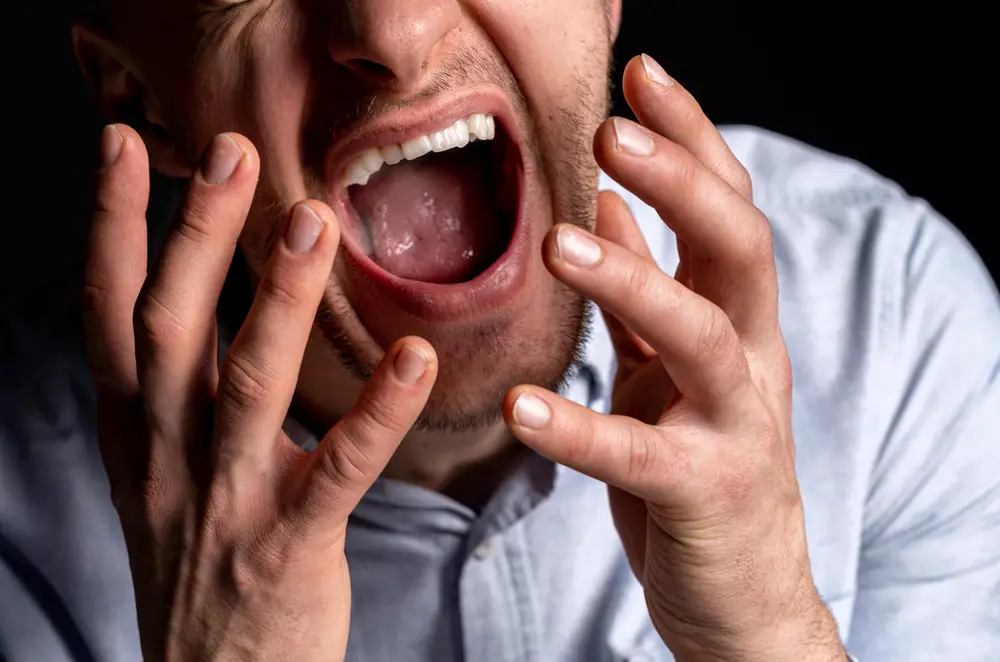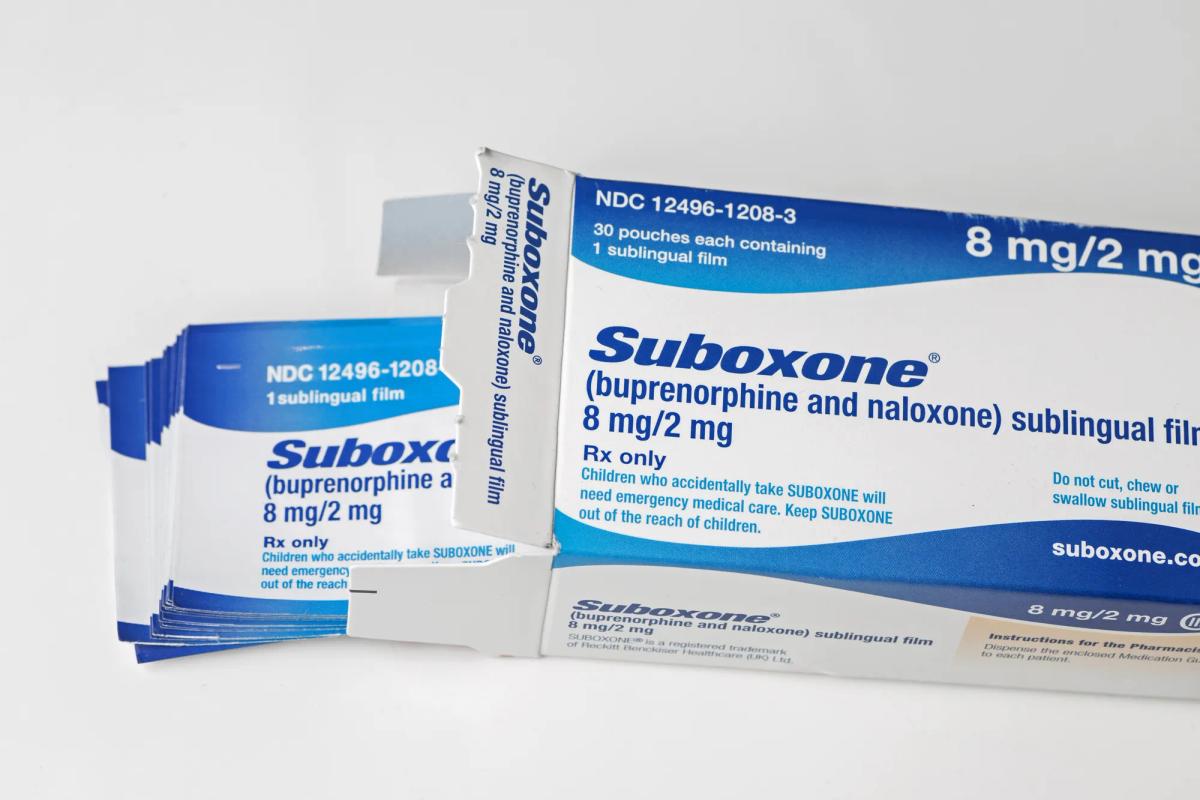Suboxone, a medication used to treat opioid addiction, has recently come under fire for allegedly causing severe dental injuries in some patients.
A wave of lawsuits filed in 2024 claim that Suboxone's manufacturers, Indivior and Reckitt Benckiser, failed to warn doctors and patients adequately about the risks of tooth decay and other oral health complications.
Suboxone's Role in Fighting the Opioid Epidemic
Suboxone is a combination of two drugs: buprenorphine (a partial opioid agonist)and naloxone (an opioid antagonist).
Together, they work to reduce opioid cravings and withdrawal symptoms without producing the same "high" as other opioids.
Doctors prescribe Suboxone as part of medication-assisted treatment (MAT) for opioid use disorder (OUD), along with counseling and behavioral therapy.
According to the Substance Abuse and Mental Health Services Administration (SAMHSA), over 2.1 million Americans received buprenorphine treatment for OUD in 2019.

Why Suboxone Causes Dental Problems
Despite its effectiveness in treating opioid addiction, Suboxone physicians have recently linked the medication to many alarming dental side effects, including:
- Severe tooth decay and cavities
- Tooth fractures and crumbling
- Gum disease and oral infections
- Tooth loss requiring extraction
Acidic reactions
Dentist experts believe mouth issues stem from the acidic nature of the Suboxone sublingual film, which patients dissolve under their tongue or against their cheek.
Erodes enamel
Over time, this direct exposure to acid can erode tooth enamel, leaving teeth vulnerable to decay. Suboxone use may also contribute to dry mouth, reducing the protective effects of saliva.
Orthodontists are allegedly seeing a pattern of extensive tooth decay in a very short period, claiming it's not uncommon for patients to need a complete mouth restoration once adverse reactions start.
Lawsuits Allege Failure to Warn by Suboxone Makers
At the heart of the Suboxone cases is the allegation that Indivior and Reckitt Benckiser knew or should have known about the risk of dental problems but failed to warn patients and doctors properly.
Breach of duty
Under US product liability law, drug manufacturers have a duty to warn of any known hazards associated with their medications.
Failure to provide adequate warnings can make them liable for harm patients suffer, even if the drug was otherwise properly designed and manufactured.
The lawsuits argue the manufacturer’s breach of duty prevented patients from making informed decisions about their care and taking steps to mitigate their risk of oral health issues.
Label omissions
Additionally, Reckitt Benckiser did not add dental side effects to Suboxone's safety labeling until several years after the medication came to market. It wasn't until 2016 that the manufacturer updated prescribing information to include "tooth decay" and "tooth loss" as potential adverse reactions.
The Suboxone lawsuits seek to hold Indivior and Reckitt Benckiser accountable under product liability legal theory.
Where Suboxone Litigation Stands Today
As of 2024, over 200 individual opioid patients have filed Suboxone dental decay lawsuits in federal courts across the country.
MDL on the horizon
With the growing number of lawsuits, there is a strong possibility that the courts will consolidate these cases into multidistrict litigation (MDL).
MDL action transfers similar cases to a single court for coordinated pretrial proceedings, such as discovery and motion practice, streamlining the litigation process, and conserving judicial resources.
Rising class action trend
The Suboxone lawyers representing opioid patient plaintiffs have already filed a motion with the Judicial Panel on Multidistrict Litigation (JPML) to create a Suboxone dental decay MDL.
Once established, we expect to see the number of lawsuits continue to soar as more patients with open addiction become aware of the potential link to their dental problems.
Defendant’s Response and History of Legal Troubles
So far, Indivior and Reckitt Benckiser have remained tight-lipped about the dental decay lawsuits.
Neither company has issued a public statement specifically addressing the claims. However, both manufacturers have a history of legal troubles related to their marketing of Suboxone.
Million dollars in fines paid
In 2019, The US Attorney's Office accused Indivior of falsely claiming Suboxone was safer and less prone to abuse than other opioid addiction treatments, provoking the manufacturer to pay $600 million to resolve criminal and civil investigations into its alleged fraudulent marketing of Suboxone.
Reckitt Benckiser paid a $1.4 billion settlement to resolve similar allegations that same year.
Antitrust litigation
The companies have also faced antitrust lawsuits alleging they engaged in anticompetitive practices to delay generic competition for Suboxone.
In 2020, Indivior reached a $300 million settlement with the Federal Trade Commission (FTC) over these claims.
While these prior legal issues don't directly bear on the merits of the dental decay lawsuits, plaintiffs' attorneys may use evidence from these earlier cases to bolster their arguments about Indivior and Reckitt Benckiser's knowledge of Suboxone's risks.
Protecting Your Dental Health While on Suboxone
If you are currently using Suboxone or considering starting the medication, you should consult with a medical or dental professional. In addition, there are steps you can take to minimize your risk of dental side effects:
- Dissolve the Suboxone film under your tongue rather than against your cheek, and avoid swishing it around your mouth.
- Rinse your mouth with water or an alcohol-free mouthwash after the film has fully dissolved.
- Wait at least an hour after taking Suboxone to brush your teeth, as brushing too soon can damage enamel softened by the medication's acidity.
- Maintain a diligent dental hygiene routine of twice-daily brushing and daily flossing.
- Visit your dentist regularly for check-ups and cleanings, and let them know you are taking Suboxone.
- Talk to your doctor about the lowest effective dose of Suboxone and the potential for alternative medications or formulations with a lower risk of dental issues.
By taking a proactive approach to your oral health, you can reduce the likelihood of developing severe dental problems while still benefiting from Suboxone's effectiveness in managing opioid addiction.
Final Thoughts on the Suboxone Dental Decay Litigation
The ongoing Suboxone MDL lawsuits shine a light on a previously little-known risk associated with this widely prescribed medication.
However, the ultimate impact of these cases on public health and opioid addiction treatment remains to be seen.
As the lawsuits move forward, they will likely raise challenging questions about the delicate balance between the benefits and risks of Suboxone and other opioid addiction medications.
While dental side effects are a serious concern for opioid patients, individuals must not lose sight of the critical role these drugs play in fighting the devastating opioid epidemic.




Add Comment